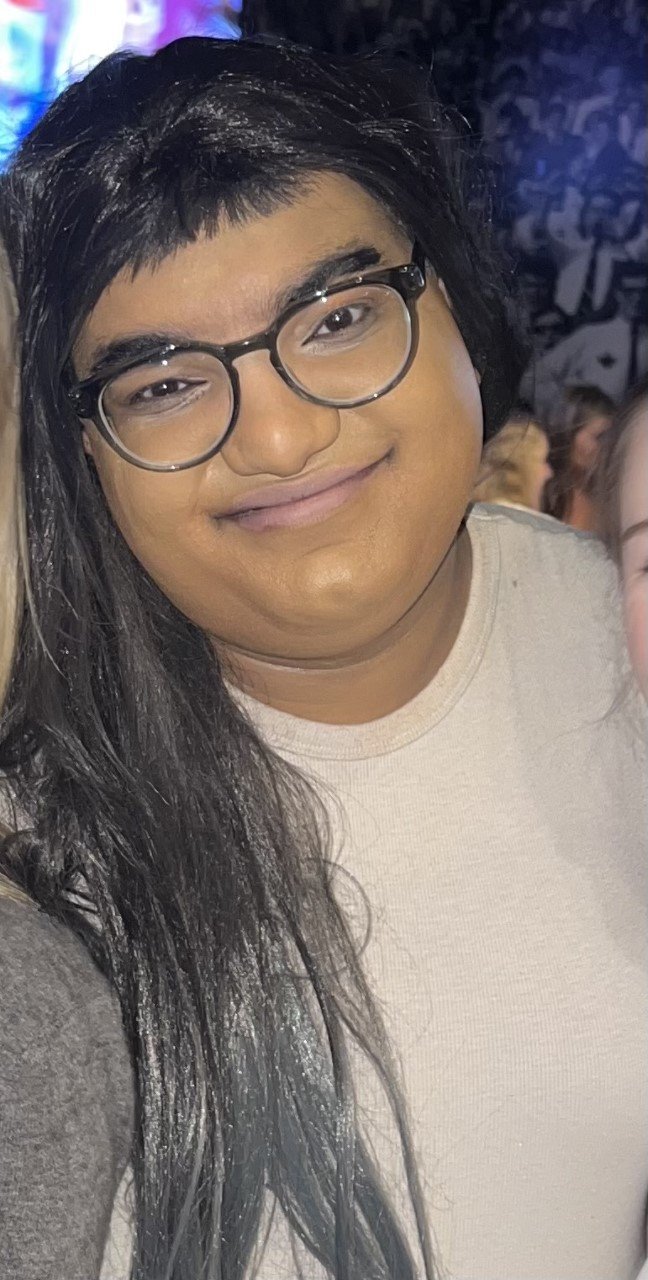In this issue's Hot Bench, we say hi to Sarah Walsh ’23, our outgoing editing editor. Two questions to start us off: First, how are you doing; and second, can you please tell me the origin story of your utterly ridiculous colophon title?
I’m doing alright! I’m probably (definitely) not 3LOL-ing as hard as I should be, but I’ve made my peace with that. I’m also a little sad to be leaving the Law Weekly colophon life behind, but the sadness mostly comes from the knowledge that I won’t be passing the Editing Editor title along to anyone. I do appreciate that someone noticed the title, though, which was inspired by Mason Pazhwak ’23 and his “Hand of the EIC” title. By the time I worked my way onto the colophon, all the standard “____ Editor” titles were already taken, so when asked what I wanted my position to be, I decided that it should be something ridiculous but also appropriately descriptive of my role on the paper—resulting in Editing Editor.
Can you tell us where you’re from and why you ended up at UVA Law?
I grew up in Atlanta, Georgia and attended UC Berkley for undergrad (go Bears) before coming to UVA Law. One of the reasons I wanted to attend UVA Law was the baseball J-term class, which I mentioned in my admissions interview. I passed it off as a joke, but it wasn’t a joke.
I know you're very involved across UVA Law, but I have to shout out of your involvements here because it's so close: The Libel Show! How are you involved with Libel, and can you give us any sneak peeks into what we can expect to see later this week?
We appreciate the publicity! I am a director (along with Ruby Cherian ’23) and a head writer (along with Jack Brown ’23) for the show, as well as an actor in it. While I don’t want to spoil any of the surprises that Libel has in store, I will say that this year’s show has something for everyone: a murder mystery, Real Housewives-inspired intros, fake babies named after various Law School locations—you want it, we’ve got it.
How long have you been working at the Law Weekly? What drew you to it?
I first started working at the Law Weekly during the spring semester of my 2L year (proof that it’s never too late to join), beginning with my first-ever article, “Balls to the Wall: Softball at UVA.” I’ve always loved writing, especially as a creative outlet, but “creative” isn’t exactly the word that I would use to describe legal writing. While writing for Libel during fall of 2L helped provide that kind of outlet, I wanted more, and lo and behold, there was the Law Weekly to give me exactly that.
Tell me either the favorite piece you've written during your time here, or your favorite types of stories to edit.
I know you asked for either, but I’m going to hit you with answers to both. My favorite piece that I’ve written during my time here is “C Them Run: Cold Callers Win Crown” about this year’s 1L Softball Tournament. If I weren’t doing this whole law school thing, I would probably want to pursue some kind of career in sports journalism, so writing the article gave me the chance to live out that dream for a little bit. I also had a great time covering the games (although my notes from them were absolutely unhinged, since I didn’t really know any 1Ls at the time and thus knew barely any players’ names).
Meanwhile, my favorite types of stories to edit are Jon Peterson ’23’s animal articles. They’re not really stories per se, but they are excellently written, informative, and—this is key—almost completely error-free, which makes editing them way easier. I also love animals, so getting to learn about them while I’m editing is a huge plus for me.
What's next for you after law school? What non-law-related thing are you most excited for in this next chapter?
After law school, I’ll be working in white collar investigations at a firm in San Francisco, and I’m definitely excited to be going back to the Bay Area—I went to UC Berkeley for undergrad and miss the area dearly. What I’m most excited for, though, is a Minor League road trip that a couple of my friends and I are planning on doing right after graduation. I’m a huge baseball fan, and Minor League Baseball games are especially entertaining (if you’d like to learn more, look up the Lehigh Valley IronPigs and their “Whack-an-Intern” promo). Driving around and going to those games with some of my closest friends is about as perfect of a law school wrap-up as I can imagine.
What is your favorite memory from Law School?
Either winning the NGSL Spring 2022 Tournament with §A & Pals or driving down to watch Game 5 of the 2021 World Series in Atlanta with Jack Brown ’23 and Parker Kelly ’23.
Lightning round:
Describe your relationship with your parents using a cream cheese flavor.
Herb (specifically the Bodo’s herb) cream cheese. I will not be elaborating further.
Dream vacation.
Anything involving a beach.
Favorite font.
Georgia—I love a good serif font, and I’m partial to this one, having grown up in Atlanta.
If you woke up and you had been magically transformed overnight into a fully sentient, literate aardvark—so you retain all of your knowledge and human intuition—would you drop out of UVA Law and try to lead your fellow aardvarks to rise up against humankind? Or would you prefer to become the first aardvark to graduate law school, with the trials and tribulations that entails?
Aardvark revolution, no question. I’m barely willing to endure the trials and tribulations of doing law school as a human, plus an aardvark uprising sounds like a pretty exciting time.
---
Interviewed by Ethan Brown '25
bwj2cw@virginia.edu












